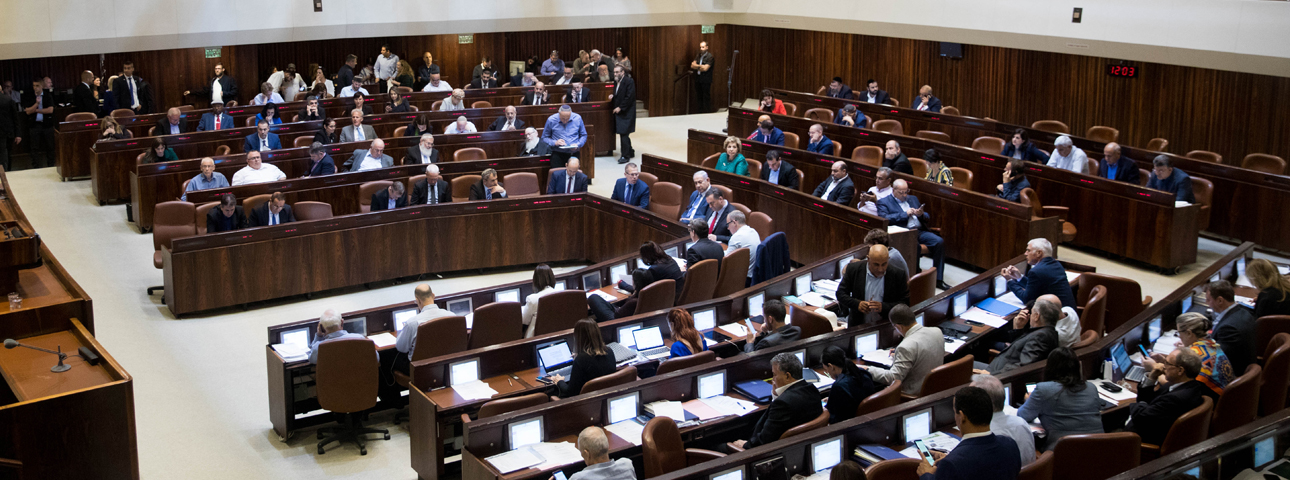What if Netanyahu Fails to Form a Coalition? Explainer
What if Netanyahu fails to form a coalition? Will Israel find itself again holding elections? Although unlikely – Dr. Ofer Kenig explains the possibilities

Flash 90
It's still too early to foresee whether the efforts to build a right-wing coalition will indeed fail, but here are some thoughts just in case:
Failure to form a coalition: Where have we seen this before?
In case Prime Minister Benjamin Netanyahu is unable to form a coalition by Wednesday’s deadline, it will be the third time in Israel’s history that the member of Knesset entrusted with the responsibility of forming a government did not succeed in doing so. The first time was in 1990 when Shimon Peres thought he had successfully formed a coalition – but at the last minute a few votes “disappeared” (what came to be known as the “dirty trick”). In the second case, in 2008, Tzipi Livni was unable to form a coalition when she replaced Ehud Olmert as the head of the Kadima party, after he resigned in 2008. Livni had to rebuild the coalition and failed to do so.
In the first case, the President appointed Yitzhak Shamir (head of the Likud) to form a government (which he indeed succeeded in doing), and in the second case the Knesset decided to advance the elections. It should be emphasized, however, that neither case involved establishing a new government immediately after elections. If Netanyahu fails, it will be a precedent in this respect.
Should Netanyahu fail to form a government by the last deadline – the ball goes back to President Rivlin, who after consultations with party representatives, may appoint another nominee to try to form a government. However, this is unlikely given the solid backing for Netanyahu among a clear majority of Knesset members. This leaves us with a couple of options:
One option: New elections
If elections are advanced, they will not be considered a “rerun” of the previous April 2019 elections. These will be new elections, perhaps even with new parties and new candidates. The term "rerun elections" is sometimes used in the case of ballot fraud. But in the current case, we are talking about early elections (very early, but still...) because of the political deadlock.
Of course this is not desirable. Such a move has budgetary implications (the cost of two elections within a few months of each other), and the state, which has been kind of "on hold" since the Knesset was dissolved in December, 2018, will continue to be in such a mode for a few more months.
That being said, this is not the end of the world. In several democracies, back-to-back elections were held when the political system found itself at a dead end:
• Britain: In 1974, two elections were held (February and October)
• Ireland: In 1982, two elections were held (February and November)
• Greece: In 1989, two elections were held (June and November)
• Greece: In 2012 two elections were held (May and June)
• Spain: Elections in December 2015 and another election in June 2016
Another option: A minority government
In principle, Netanyahu does not need a majority of 61 to form a government. All he needs is a situation in which more hands vote in favor of the government than oppose it. For example, if 60 are in favor, 55 against and five from Yisrael Beiteinu abstain, the government may take office.
But it is clear that such a government would be very shaky. The coalition would not have a majority, and would have to constantly bargain for the support of other factions in order to pass laws and other decisions.
However, minority governments are quite common in democracies such as Canada, Denmark, Sweden and Spain. As of this writing, minority governments are serving in Ireland, United Kingdom, Denmark, Norway, Spain and Sweden.
In Israel, minority governments are rare. The few cases of minority governments took place after one or more factions withdrew from the coalition, as happened, for example, with the Rabin government after the withdrawal of Shas, or the Barak government after the withdrawal of Meretz, the National Religious Party and Shas. However, no minority government has ever been formed following elections.
In sum, minority government or early elections are two of the possibilities, both will throw the political system into unstable situation and extend the long period of “government on hold”.
